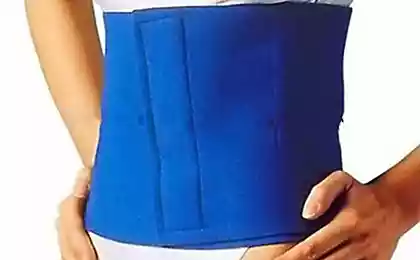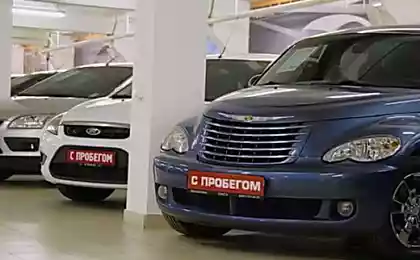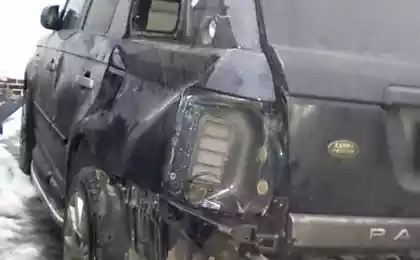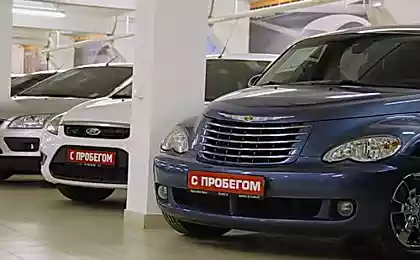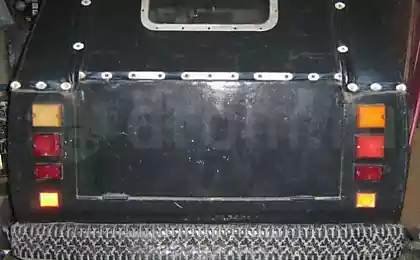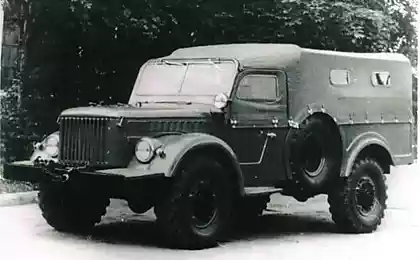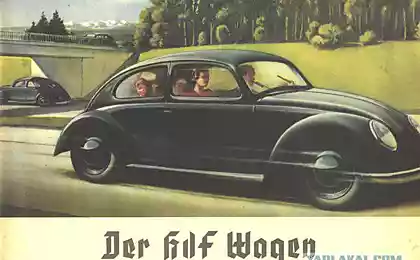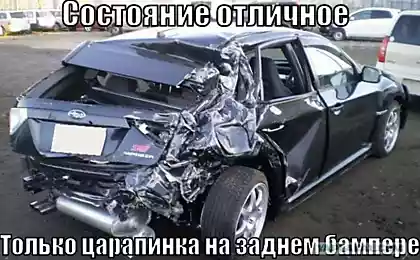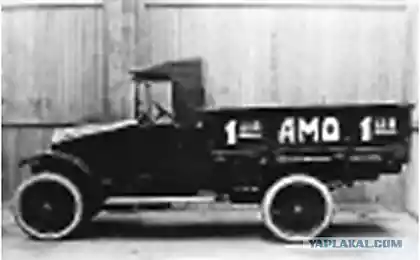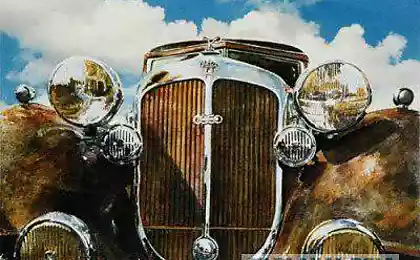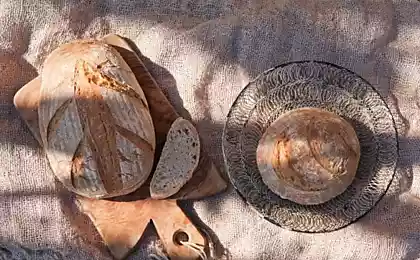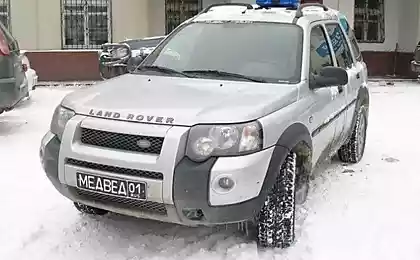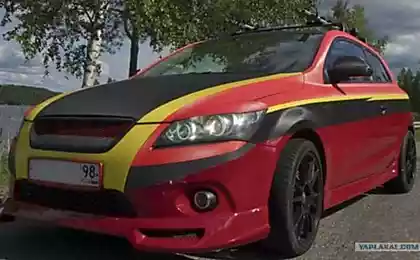1037
Car Protection film: the beauty and benefits
Car Protection film: pros, cons, options, price.
Pasting of car film is becoming more and more popular: the number of such machines in the flow increases, respectively, multiplied by the provision of services of this service. We decided to look into the pros and cons of car pasting films Stone Chip - like vinyl (economy version), as well as more modern and expensive polyurethane.
18 photo source.
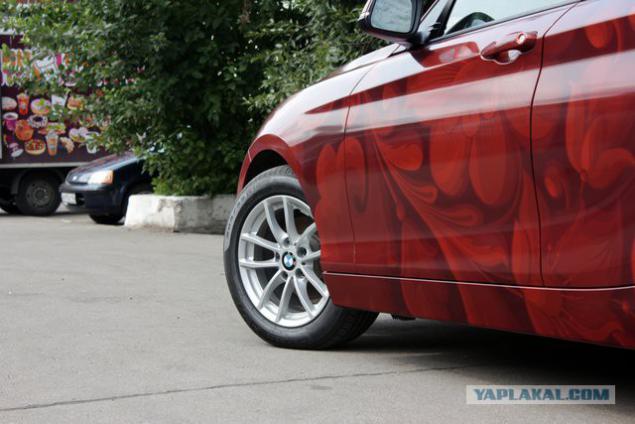
The main task of the protective films Stone Chip, as its name implies - to protect the paintwork from scratches, chips and other "minor troubles." All films were divided into two major types: vinyl and polyurethane. Vinyl film first appeared on the market: in structure they are closer to the plastic and can change their size only by heating and then harden and become rigid. Stone Chip polyurethane film on the properties, structure and characteristics closer to the rubber: can significantly stretch without heat, but it takes the original size. Naturally, the latest film quickly won market.
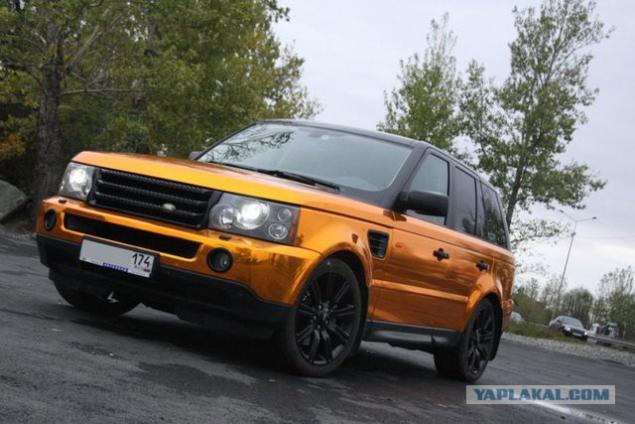
Stone Chip polyurethane film was developed and first used for the needs of the US Army. It was applied to the blades of a helicopter during Operation "Desert Storm", since otherwise the blades wear out very quickly in the "sand" the air of the Middle East. Large manufacturers of vinyl films have realized the benefits of polyurethane and began to use it for pasting cars. After all, originally designed vinyl for advertising, signage and everything that is not subject to aggressive environmental influences.
Car pasted transparent polyurethane
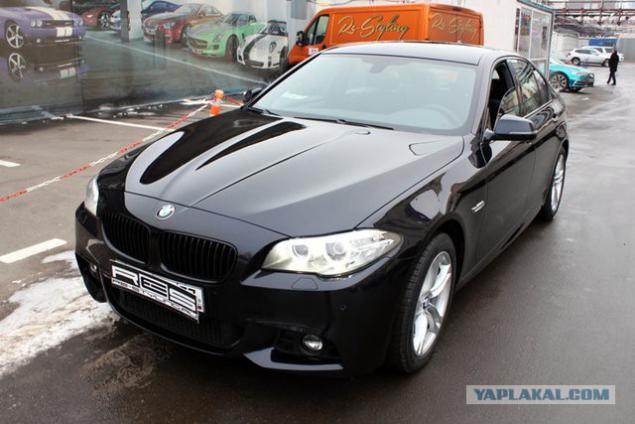
The principal difference is that the vinyl film, in fact, protected only by the thickness and polyurethane - its properties. In winter, at low temperatures, polyurethane films do not lose their defensive abilities, but vinyl "dubeyut" even more, and tear them there is no difficulty.
Feel the difference: the body is already pasted matte vinyl wrap, and bumper are no
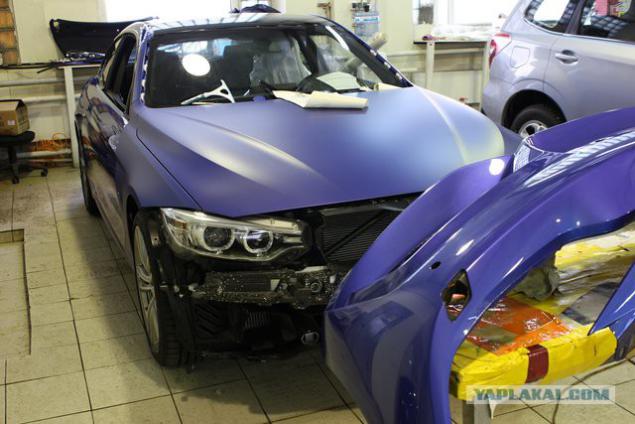
The principal difference is that the vinyl film, in fact, protected only by the thickness and polyurethane - its properties. In winter, at low temperatures, polyurethane films do not lose their defensive abilities, but vinyl "dubeyut" even more, and tear them there is no difficulty.
The result of normal winter operation vinyl on the hood: cracks, blisters and, as a result, delamination resulted in the fact that spring had to shoot the film entirely ...
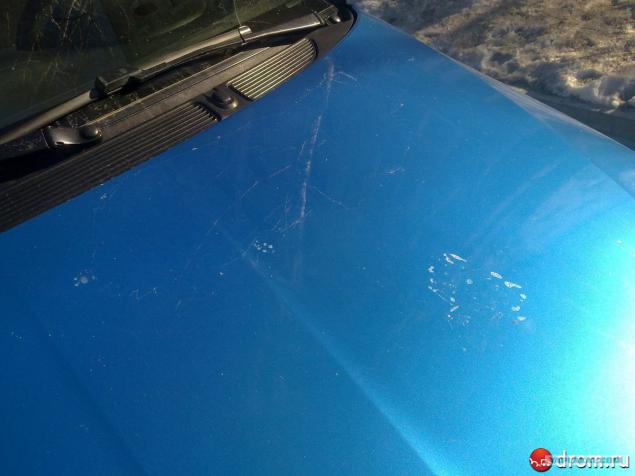
Vinyl or polyurethane?
What's the difference? Vinyl - ordinary transparent film, an average thickness of about 100 microns (0, 1 mm), which is mainly used for pasting of cars. It is good protection from minor scratches, twigs, sand, damage sloppy cleaning. Disadvantages - quickly fade in the bright sun and yellow under the influence of chemicals. The vinyl film may be not only transparent but also matt, in this case it becomes more and styling element. However, in the case of scratches or small chips have to glue the whole element (or put up with the lack of aesthetics).
This car has just pasted matte transparent vinyl film

Polyurethane film (it is sometimes still referred to simply as urethane) - strong enough, thickness is usually about 150 microns (less frequently - up to 300 microns), well resists chipping large, deep scratches and to protect the car better suited vinyl. For example, it protects the paint from hitting the door of the neighboring car or truck in the supermarket. Polyurethane transmits ultraviolet light, so to maintain a uniform color tone, it is not necessary to paste over the entire car: glued and unprotected parts even after several years of operation, the tone will be different.
But it is much more expensive than polyurethane films of vinyl, its cost (without the work of pasting) five times higher if the meter inexpensive vinyl film will cost 750 rubles (although there are more expensive options), the polyurethane - 3 500.
No cars on car paint in matte colors. Typically, these machines are fitted respective films
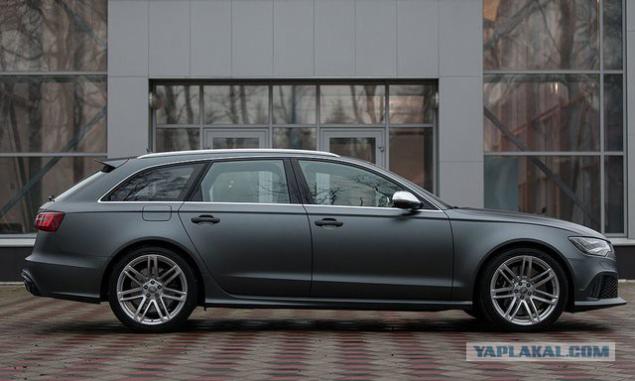
Features of different films
Glue film on a special soap solution. As an alternative basis for taking baby shampoo Johnson's Baby without alkali or dishwashing liquid Fairy. Some okleyschiki use just water, but the soap composition did not help the film sticks to the crease in the case of the formation without consequences could undermine it and re-rolled.
Prices are a bit different manufacturers vary in the range of 10-15 percent. The major players in the market three polyurethane films: 3M (formerly Venture Shield, according to Director of Business Development Re-Styling Ivan Kovalev, recently very reduced quality), Suntek and Hexis. Among Re-Styling prefer to work with the latest manufacturer: «Hexis - the most transparent, gives the least sharkskin with a good price / quality ratio", - says Ivan Kovalev.
Is it possible to paste over their own cars?
Uninitiated hard to believe that all these folds the film just after an hour and a half will be gently smoothed ...
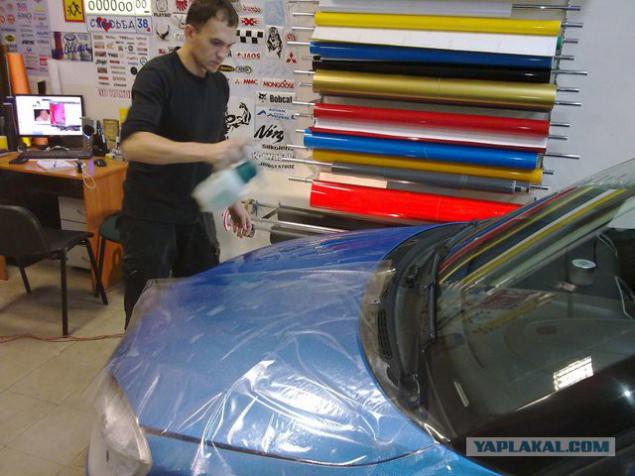
Theoretically, this is real. It is important that the room was a constant temperature of 20-23 degrees Celsius, no drafts, dirt and dust. When pasting the film is removed from the substrate, which protects the adhesive layer (the principle is similar to the double sided tape), with the formation of static electricity, which instantly attracts microscopic dust particles.
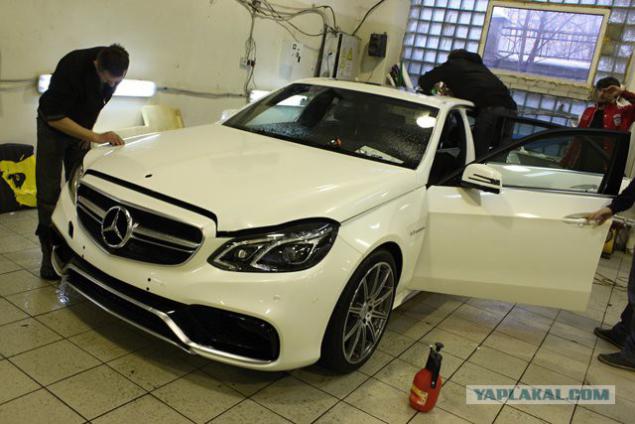
Gluing a film that a decorative, protective that you need a new car. By car, which drove even 100 km, may have formed some scratches and chips, and the film will make them more visible. Unlike vinyl films, polyurethane takes time for drying the vehicle, typically about 12 hours. "We finish pasting machines in the evening to the morning, when the water from the film has dried, it was possible to correct the shortcomings," - said a senior manager of the company Atlant-M Eugene Zhuravlev.
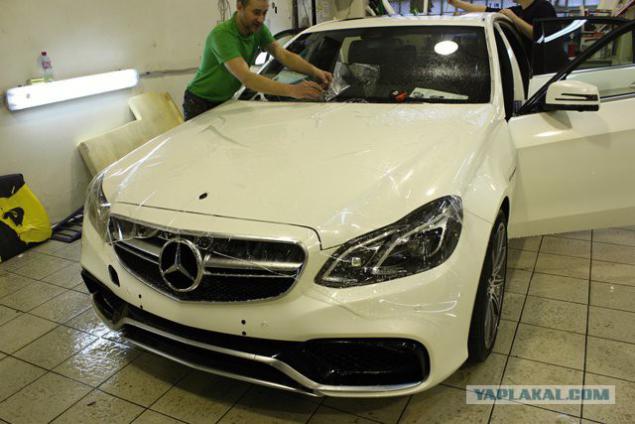
So there is a process of training and pasting car film
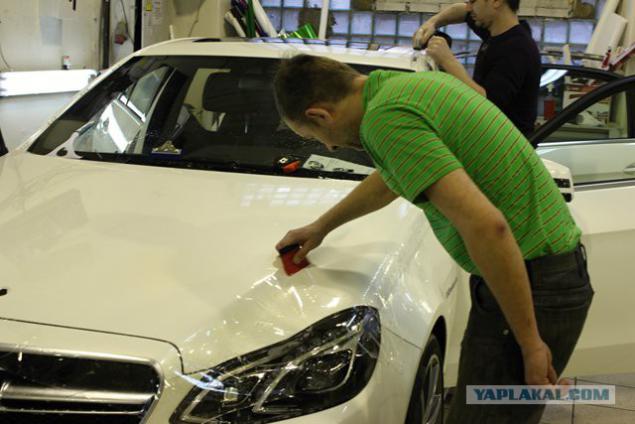
Protect any decorative film?
Until now, it was a transparent protective film. But there are two types of material: the colored films, including various effects (under the skin, under carbon, wood, etc.) and chrome. Recent glued semi-dry method ("at badyagu") - the surface is treated with a soap solution and then applied to the film. This is due to the chrome film, or when its demolition can be formed stretch marks, holograms, and the entire piece of film have to be discarded. Colored film as well as transparent, glued "dry", that is, on the surface must remain only a thin layer of the composition of soap and no water.
You can paste over the film and the car yourself, but for a really high-quality work requires special tools, skills and experience
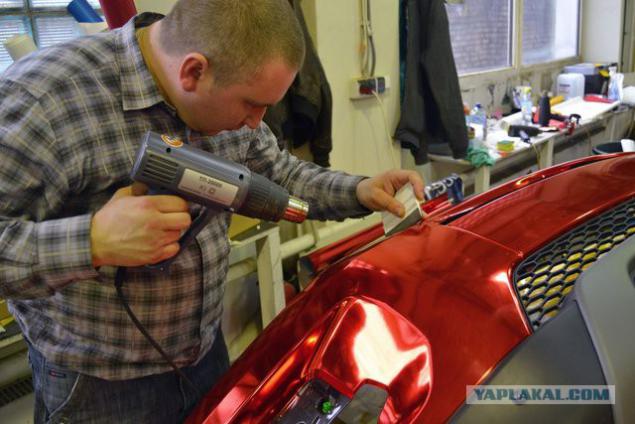
Colored and chrome films also have a protective function, but at the expense of smaller thickness (70-100 microns) to break it easily. However, there are a series of color films, which are the same thickness as a protective - they are just as effective in protecting the body, as usual, with more and change the appearance of the car. "But as a rule, people who order the colored film in the first place is still interested in appearance, and not to protect", - says Ivan Kovalev.
Price issue
Price pasting cars is made up of several factors:
1. The film and its thickness, the kind of color.
2. Type of vehicle and its design features. Here's an example: BMW X6 and BMW X6M - the machine is essentially the same, but have differences that complicate pasting (aerodynamic body kit, wheel arch extensions in body color and so on).
3. The volume of "reinforcement" of work: assembly and disassembly of the vehicle. There are machines that need to parse for pasting almost by half: to remove bumpers, headlights, trim, moldings and so on.
All that can be removed before pasting film is removed
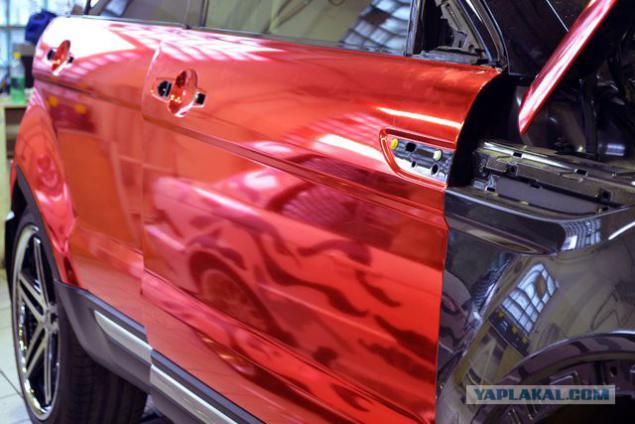
The price range will be large enough. For example, pasting vinyl film crossover (like the Mitsubishi ASX and Nissan Qashqai) will cost at least 35 000 rubles (lifetime of at least three years). Pasting the same vehicle with polyurethane with a lifetime of at least five years will be 15-20 thousand rubles more expensive. In any case, those prices are exemplary in nature and are discussed with the client, taking into account the characteristics of each vehicle.
The edges of the film need to start fining elements inside, or during operation there is a risk of the film delamination
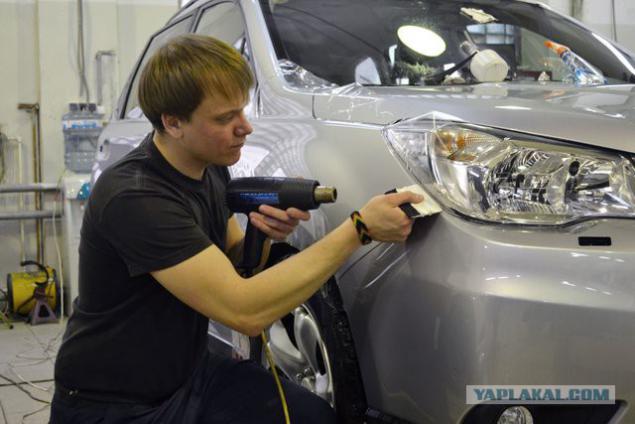
Fining a car completely quite expensive. And people often cause Stone Chip film only on the most vulnerable elements. In most cases - the front bumper, hood, front fenders, roof and sometimes the surface of the door handle.
Elements of complex shape or difficult areas require particularly careful approach to pasting
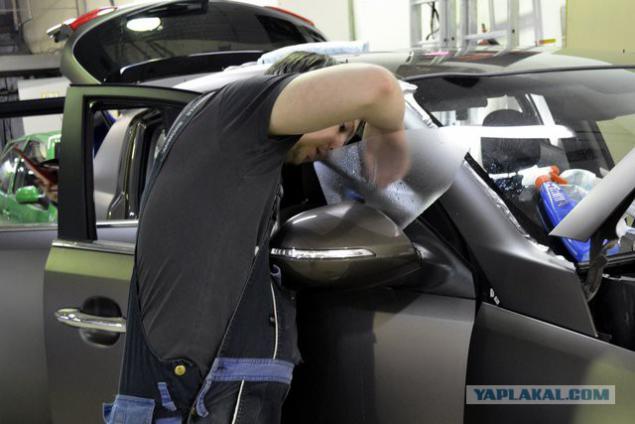
Special requests care film there. Matt can not be polished, and when visiting the car wash to warn employees that the car is lined with foil, to close do not hold the gun. Some details are pasted joint to joint, where the film does not start for detail, and at a certain angle and the huge pressure it is possible to "lift up." Although, experts say, is possible only if poor quality work, usually the film is glued tightly, and it just does not pull out. The service life of the majority of films at least five years. To not yellowed film ahead of time, the machine does not need to keep dirty for a long time.
Normal Yellow gloss and polyurethane transparent film
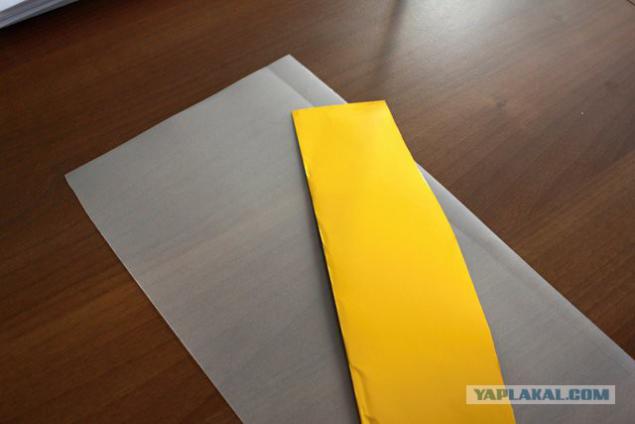
...
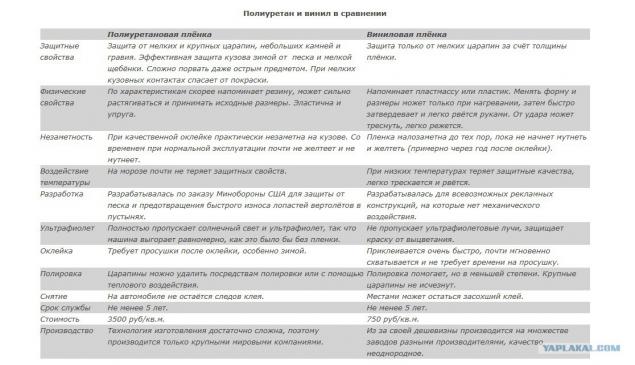
What is the result?
Polyurethane film for today - the best protection from paint chips, scratches and stone, however, and it costs 5 times more expensive than ordinary vinyl. However, in the case of sale costs pasting of the car (especially when intensive use) can pay off, because the body of the car will be "like new».
ALL!!!
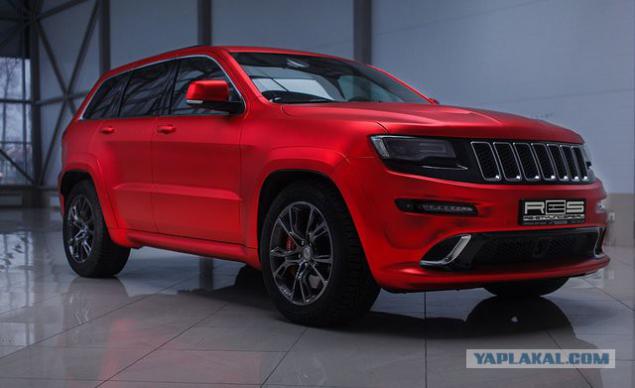
Source:
Pasting of car film is becoming more and more popular: the number of such machines in the flow increases, respectively, multiplied by the provision of services of this service. We decided to look into the pros and cons of car pasting films Stone Chip - like vinyl (economy version), as well as more modern and expensive polyurethane.
18 photo source.

The main task of the protective films Stone Chip, as its name implies - to protect the paintwork from scratches, chips and other "minor troubles." All films were divided into two major types: vinyl and polyurethane. Vinyl film first appeared on the market: in structure they are closer to the plastic and can change their size only by heating and then harden and become rigid. Stone Chip polyurethane film on the properties, structure and characteristics closer to the rubber: can significantly stretch without heat, but it takes the original size. Naturally, the latest film quickly won market.

Stone Chip polyurethane film was developed and first used for the needs of the US Army. It was applied to the blades of a helicopter during Operation "Desert Storm", since otherwise the blades wear out very quickly in the "sand" the air of the Middle East. Large manufacturers of vinyl films have realized the benefits of polyurethane and began to use it for pasting cars. After all, originally designed vinyl for advertising, signage and everything that is not subject to aggressive environmental influences.
Car pasted transparent polyurethane

The principal difference is that the vinyl film, in fact, protected only by the thickness and polyurethane - its properties. In winter, at low temperatures, polyurethane films do not lose their defensive abilities, but vinyl "dubeyut" even more, and tear them there is no difficulty.
Feel the difference: the body is already pasted matte vinyl wrap, and bumper are no

The principal difference is that the vinyl film, in fact, protected only by the thickness and polyurethane - its properties. In winter, at low temperatures, polyurethane films do not lose their defensive abilities, but vinyl "dubeyut" even more, and tear them there is no difficulty.
The result of normal winter operation vinyl on the hood: cracks, blisters and, as a result, delamination resulted in the fact that spring had to shoot the film entirely ...

Vinyl or polyurethane?
What's the difference? Vinyl - ordinary transparent film, an average thickness of about 100 microns (0, 1 mm), which is mainly used for pasting of cars. It is good protection from minor scratches, twigs, sand, damage sloppy cleaning. Disadvantages - quickly fade in the bright sun and yellow under the influence of chemicals. The vinyl film may be not only transparent but also matt, in this case it becomes more and styling element. However, in the case of scratches or small chips have to glue the whole element (or put up with the lack of aesthetics).
This car has just pasted matte transparent vinyl film

Polyurethane film (it is sometimes still referred to simply as urethane) - strong enough, thickness is usually about 150 microns (less frequently - up to 300 microns), well resists chipping large, deep scratches and to protect the car better suited vinyl. For example, it protects the paint from hitting the door of the neighboring car or truck in the supermarket. Polyurethane transmits ultraviolet light, so to maintain a uniform color tone, it is not necessary to paste over the entire car: glued and unprotected parts even after several years of operation, the tone will be different.
But it is much more expensive than polyurethane films of vinyl, its cost (without the work of pasting) five times higher if the meter inexpensive vinyl film will cost 750 rubles (although there are more expensive options), the polyurethane - 3 500.
No cars on car paint in matte colors. Typically, these machines are fitted respective films

Features of different films
Glue film on a special soap solution. As an alternative basis for taking baby shampoo Johnson's Baby without alkali or dishwashing liquid Fairy. Some okleyschiki use just water, but the soap composition did not help the film sticks to the crease in the case of the formation without consequences could undermine it and re-rolled.
Prices are a bit different manufacturers vary in the range of 10-15 percent. The major players in the market three polyurethane films: 3M (formerly Venture Shield, according to Director of Business Development Re-Styling Ivan Kovalev, recently very reduced quality), Suntek and Hexis. Among Re-Styling prefer to work with the latest manufacturer: «Hexis - the most transparent, gives the least sharkskin with a good price / quality ratio", - says Ivan Kovalev.
Is it possible to paste over their own cars?
Uninitiated hard to believe that all these folds the film just after an hour and a half will be gently smoothed ...

Theoretically, this is real. It is important that the room was a constant temperature of 20-23 degrees Celsius, no drafts, dirt and dust. When pasting the film is removed from the substrate, which protects the adhesive layer (the principle is similar to the double sided tape), with the formation of static electricity, which instantly attracts microscopic dust particles.

Gluing a film that a decorative, protective that you need a new car. By car, which drove even 100 km, may have formed some scratches and chips, and the film will make them more visible. Unlike vinyl films, polyurethane takes time for drying the vehicle, typically about 12 hours. "We finish pasting machines in the evening to the morning, when the water from the film has dried, it was possible to correct the shortcomings," - said a senior manager of the company Atlant-M Eugene Zhuravlev.

So there is a process of training and pasting car film

Protect any decorative film?
Until now, it was a transparent protective film. But there are two types of material: the colored films, including various effects (under the skin, under carbon, wood, etc.) and chrome. Recent glued semi-dry method ("at badyagu") - the surface is treated with a soap solution and then applied to the film. This is due to the chrome film, or when its demolition can be formed stretch marks, holograms, and the entire piece of film have to be discarded. Colored film as well as transparent, glued "dry", that is, on the surface must remain only a thin layer of the composition of soap and no water.
You can paste over the film and the car yourself, but for a really high-quality work requires special tools, skills and experience

Colored and chrome films also have a protective function, but at the expense of smaller thickness (70-100 microns) to break it easily. However, there are a series of color films, which are the same thickness as a protective - they are just as effective in protecting the body, as usual, with more and change the appearance of the car. "But as a rule, people who order the colored film in the first place is still interested in appearance, and not to protect", - says Ivan Kovalev.
Price issue
Price pasting cars is made up of several factors:
1. The film and its thickness, the kind of color.
2. Type of vehicle and its design features. Here's an example: BMW X6 and BMW X6M - the machine is essentially the same, but have differences that complicate pasting (aerodynamic body kit, wheel arch extensions in body color and so on).
3. The volume of "reinforcement" of work: assembly and disassembly of the vehicle. There are machines that need to parse for pasting almost by half: to remove bumpers, headlights, trim, moldings and so on.
All that can be removed before pasting film is removed

The price range will be large enough. For example, pasting vinyl film crossover (like the Mitsubishi ASX and Nissan Qashqai) will cost at least 35 000 rubles (lifetime of at least three years). Pasting the same vehicle with polyurethane with a lifetime of at least five years will be 15-20 thousand rubles more expensive. In any case, those prices are exemplary in nature and are discussed with the client, taking into account the characteristics of each vehicle.
The edges of the film need to start fining elements inside, or during operation there is a risk of the film delamination

Fining a car completely quite expensive. And people often cause Stone Chip film only on the most vulnerable elements. In most cases - the front bumper, hood, front fenders, roof and sometimes the surface of the door handle.
Elements of complex shape or difficult areas require particularly careful approach to pasting

Special requests care film there. Matt can not be polished, and when visiting the car wash to warn employees that the car is lined with foil, to close do not hold the gun. Some details are pasted joint to joint, where the film does not start for detail, and at a certain angle and the huge pressure it is possible to "lift up." Although, experts say, is possible only if poor quality work, usually the film is glued tightly, and it just does not pull out. The service life of the majority of films at least five years. To not yellowed film ahead of time, the machine does not need to keep dirty for a long time.
Normal Yellow gloss and polyurethane transparent film

...

What is the result?
Polyurethane film for today - the best protection from paint chips, scratches and stone, however, and it costs 5 times more expensive than ordinary vinyl. However, in the case of sale costs pasting of the car (especially when intensive use) can pay off, because the body of the car will be "like new».
ALL!!!

Source:

